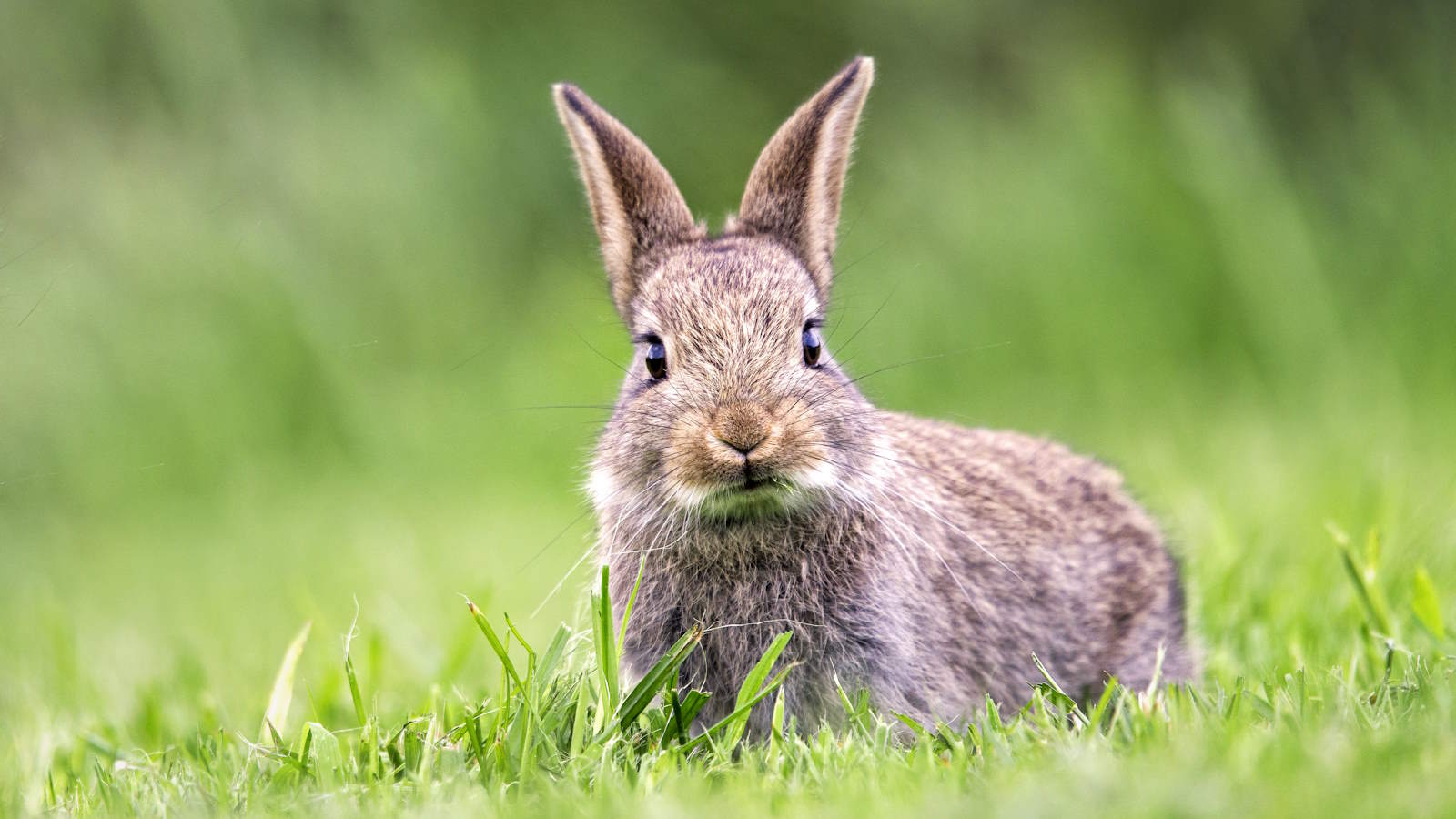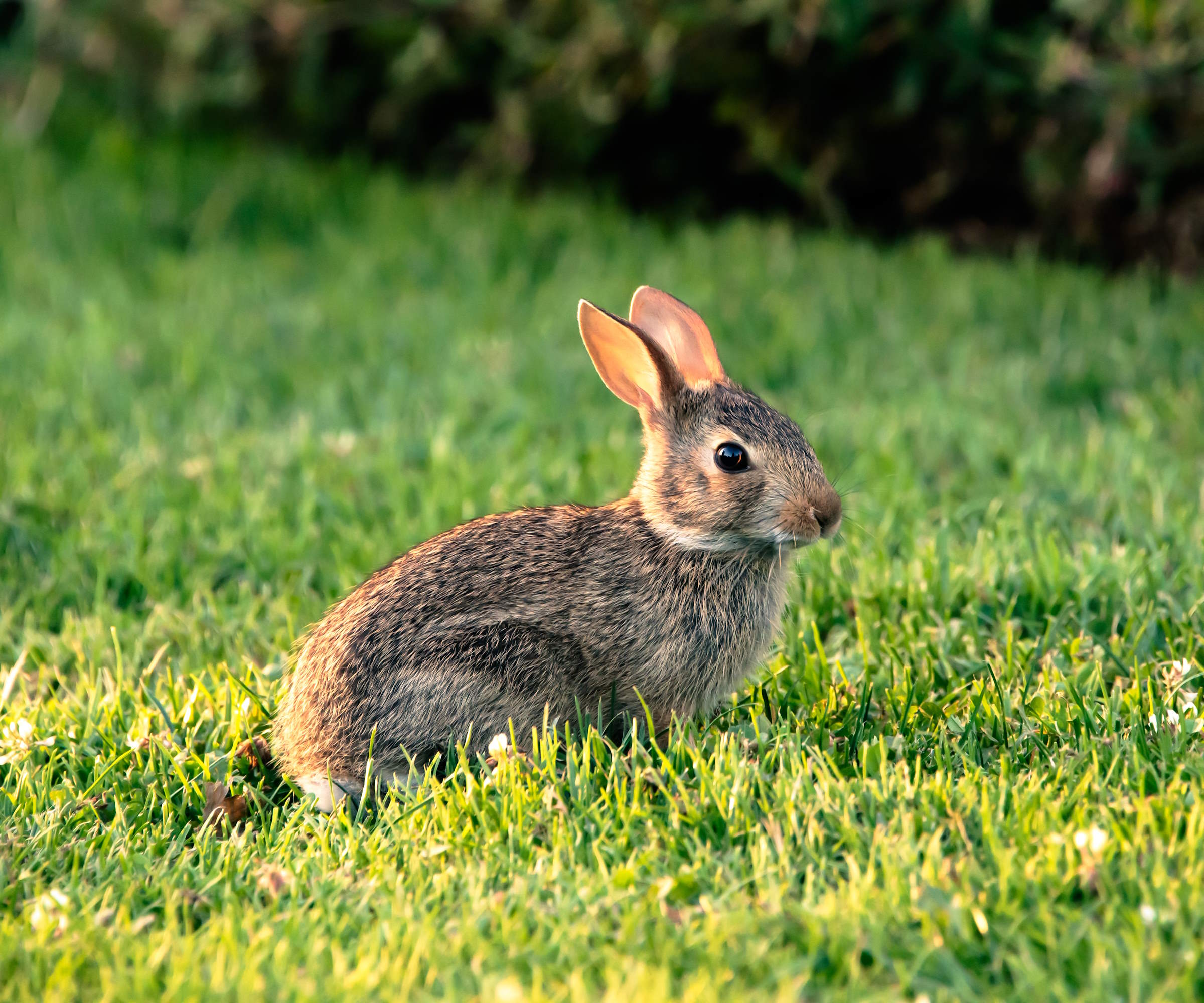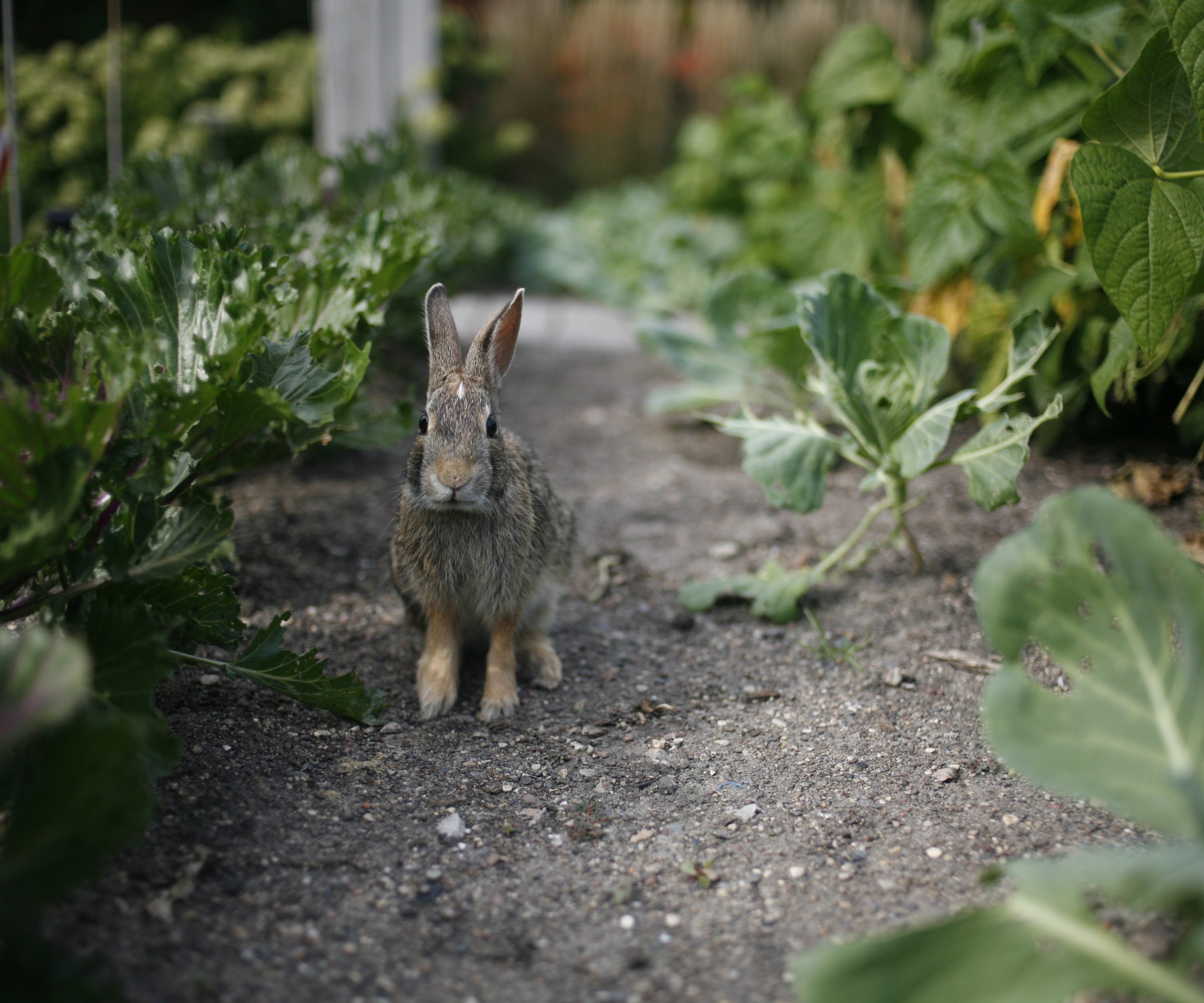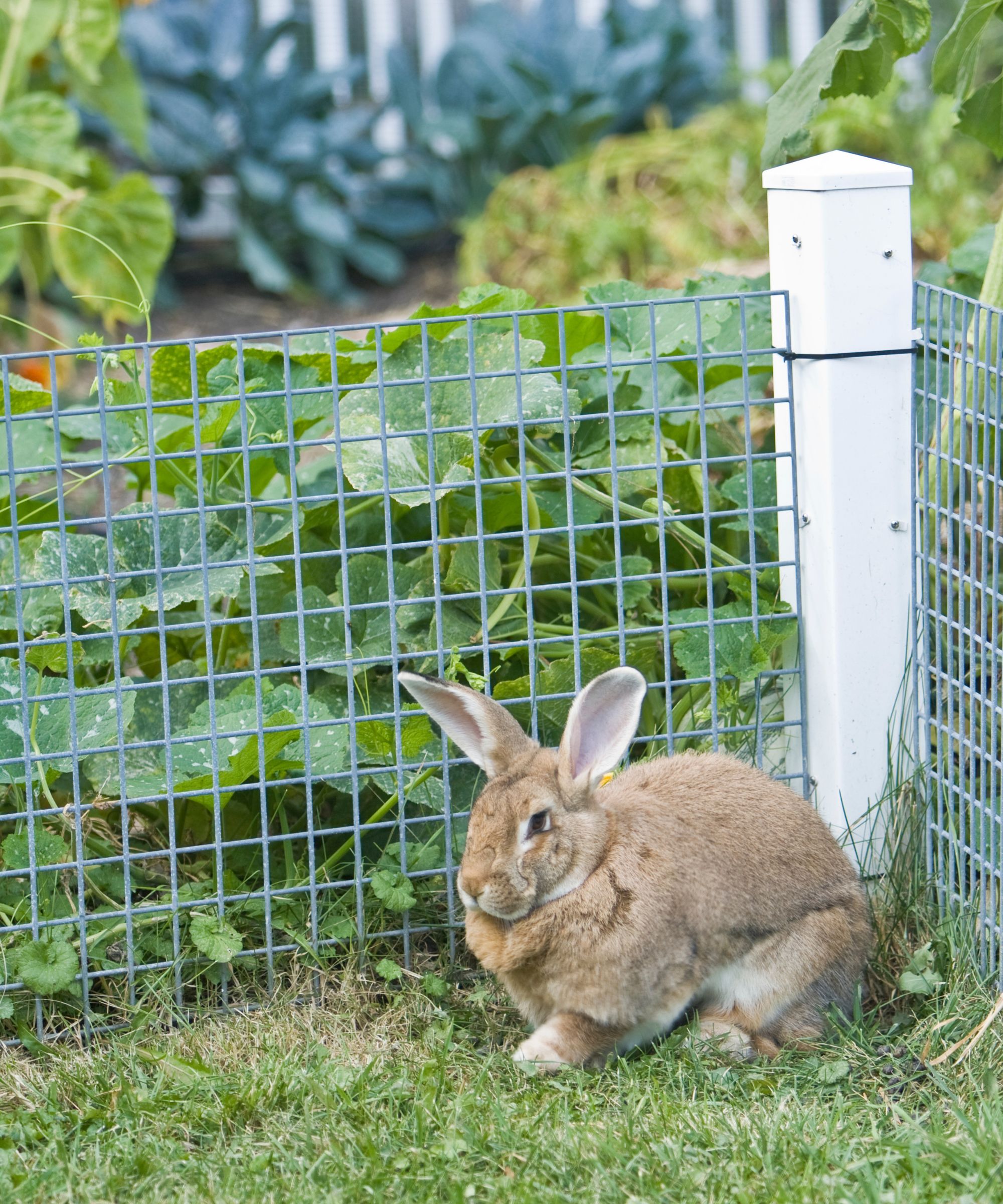
Wild rabbits can be troublesome, as they are capable of munching through plants and causing damage to pristine lawns.
A well-maintained lawn can quickly end up scarred by the presence of rabbits that quickly eat, dig, defecate, and multiply in numbers. It can be a nightmare for anyone who has spent time and effort on a dedicated lawn care regime to keep their grass in top condition.
Thankfully, there are several different ways to keep them off a lawn - including natural methods to keep rabbits at bay. On top of adding rabbit-repellent plants to your backyard ideas to stop them from nibbling at your beds and borders, utilizing some of the following tactics will prevent them from damaging your lawn too.

Why you may have a rabbit problem
Rabbits are more likely to be a backyard pest if you live in the countryside. If your backyard connects to a field and is accessible then wild rabbits can increasingly be a problem. Rabbits are even known to nest under trees, bushes, or porches and can multiply quickly. They do cause damage to a yard and a lawn, but there are ways and means to keep them away.
How rabbits damage lawns

Rabbits are capable of causing damage to a lawn primarily due to their voracious appetite. Aspirations for a green and thick lawn can be ruined if rabbits are left unchecked to wreak havoc on grass. The main damage that rabbits will cause comes from the fact that they simply love to eat grass, and in large amounts.
‘They're notorious for not only chewing on the blades but destroying your grass root-deep, which can be difficult for your lawn to come back from,’ says Ryan Farley, CEO of LawnStarter.
He adds: ‘The lesser known impact, however, is that their urine and faeces can also harm your grass, and might be creating stubborn brown spots or even dead spots.’
As well as being keen grazers, rabbits are also prolific diggers as they try to burrow for food in the ground. This can cause any lawn to be uneven and patchy.
Grazing and digging, along with the bare patches caused as they urinate and defecate on lawns, all add up to a major headache for any homeowner - especially if they have young children who want to play on the lawn.
Any bare patches can be rectified by overseeding with fast-growing grass seed and holes left by rabbits can be filled with a mix of topsoil and grass seed.
How to keep rabbits from destroying the lawn

Rabbits can cause problems for established and new lawns. The best way to prevent issues is to put in a physical barrier. If you fear rabbits may cause issues when you lay turf or plant grass seed to start a new lawn, getting a barrier in beforehand is a good way to prevent potential problems.
However, it is not just a standard type of garden fence that will be sufficient to prevent rabbits from potentially eating a lawn. Dan Bailey, president of WikiLawn Tampa Lawn Care, advises that any fence must be 'at least two feet tall and several inches underground because rabbits will dig under it if it's too shallow’.
There are alternatives to putting in a fence that can prevent rabbits from causing damage, without harming them. It includes using specially formulated rabbit-repellent products that can be sprayed around lawns. They are designed to keep rabbits away as they contain compounds that trigger the animal’s instinctive reach to stay away from the smell.
Any gardeners who do not like using chemicals can turn to more organic gardening techniques to deter rabbits, such as homemade sprays to keep them at bay. One such option, as recommended by Jeremy Yamaguchi, CEO of Lawn Love, is ‘ peppermint, garlic, onion, or (very small amounts of) pepper spray’ applied along the perimeter of your lawn to keep rabbits at bay.
An alternative to a spray is recommended by Ryan Farley, who says: ‘A good homemade repellent is just to combine things like chilli flakes, garlic powder, cumin, and other strong-smelling herbs and spices and combine them into a powder you sprinkle over your lawn.’
Finally, companion planting with rabbit-repellent plants can keep them away while looking beautiful. Plants such as lavender, marigolds, mint, foxgloves, or daffodils can be used as natural rabbit repellents in flower beds and borders to provide a barrier around a lawn.
Shop rabbit repellent options
A granular product that creates an invisible barrier to ward off bothersome critters. Apply the scent-deterrent formula year-round to deter deer and rabbits from your backyard.
The animal barrier extends the protection of your existing fence underground. It can stop critters like rabbits and groundhogs from damaging your garden.
A superb grower and wondrously fragrant variety of lavender to use as a natural rabbit repellent as the smell in the plant’s natural oil is too much for rabbits.
FAQs
Can rabbits mow your lawn?
If you have pet rabbits, there may be a temptation to use them as a natural replacement for a lawn mower. For example, they could be kept in a small enclosure outdoors for small periods and moved around the lawn to nibble the grass. The rabbits will eat the grass and keep it short, however, it won’t be a smooth and consistent finish and they will also dig holes and create bare patches.
It is important to act quickly if you spot these notorious pests in your backyard. Building a fence is often the best way to keep rabbits out, yet there are ways to beautify a boundary fence. See our guide to the best plants to cover a fence for inspirational ideas to transform it with gorgeous climbing plants.







